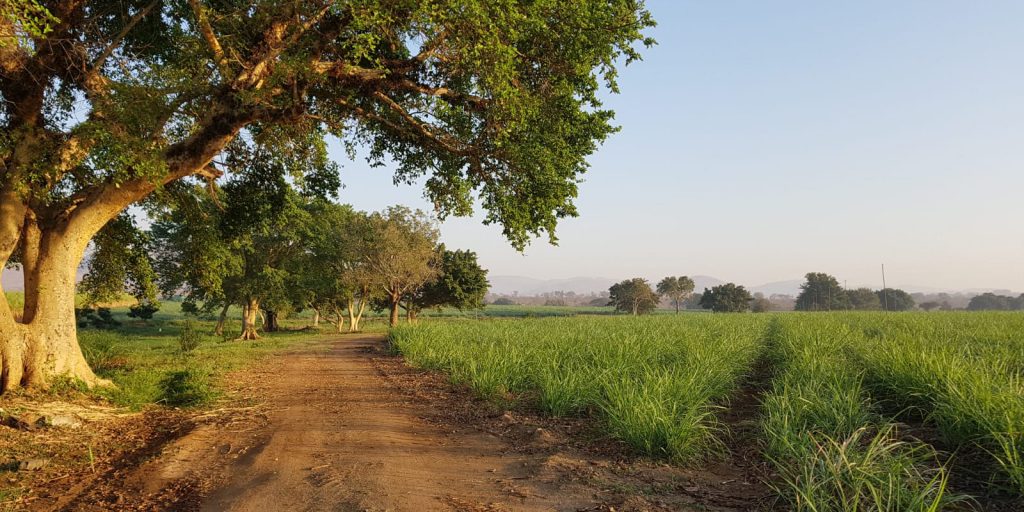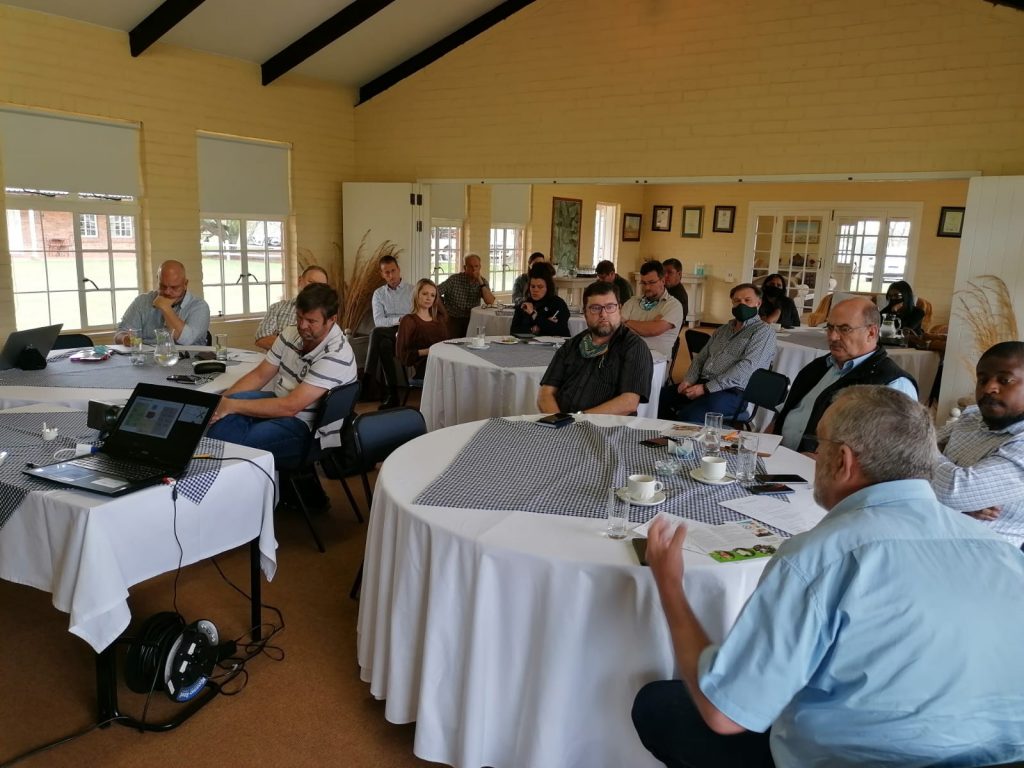13th October 2021

The purpose of our Good practice, Better finance project in South Africa is to develop a new methodology to assess the sustainability performance of farmers and examine the landscapes. It uses existing standards for sustainable sugarcane production (Bonsucro), cotton production (the Better Cotton Initiative) and water management (Alliance for Water Stewardship) as guidance.
After two years of work with ten project participants, it was time to share the first outcomes with South African stakeholders. On 28 September, we organised a field trip and workshop in Wartburg (KwaZulu-Natal) for the large South African banks, relevant farmers, and sustainability standards organisations. The meeting was attended by 23 people from 15 organisations including Nedbank (a participant in the project), Standard Bank and ABSA Bank.
The methodology and supporting tools were developed to inform decision makers of Financial Institutions (FIs) on the sustainability profiles of their clients. They are also aligned to the IFC Performance Standard. The proposed innovation will put financial institutions in a better position to offer incentives for sustainable behaviour and provides a framework for reporting on contributions towards achieving the Sustainable Development Goals (SDG’s).
During the day, the methodology and the tools developed to test the methodology were presented and discussed. The project revealed that a huge amount of sustainability related data is already collected and available from farms, sustainability standards, farmer and commodity organisations, research institutes and supply chain operators. This is data across the farm level, sector level, and regional/landscape level.

The purpose of the methodology is to identify data sources, obtain access to the data, check and clean it, then collate and analyse it. The results are then presented in a meaningful dashboard. Combining data from the sector and the regional landscape gives more meaning to the data from a farm. To test the methodology, tools were developed using Survey123 and Power BI, to facilitate data collection, analysis and presentation. These were presented and demonstrated during the field visit.
For the methodology to work, collaboration is critical. Until now, the project’s contributing organisations have been working in silo – using their own data collection systems, databases and methods for analysing and using the data. Very little has been shared – although the willingness to collaborate is evident. Therefore, the priority focus area should be on building trust between the different organisations and establishing a platform to which they can subscribe.
A platform could include farmer and commodity organisations, standard organisations, research institutes and finance and insurance institutions as members. It can function as the trigger for alignment and sharing and highlighting where collective action is necessary. All participants would have access to the opensource data, and farms could decide who they share data with, giving them autonomy and ability to protect their businesses. This line of thought was largely supported by the delegates. The feasibility of an actual platform needs to be established in follow up discussions.
A field visit is not complete without a closer look at the actual farming practices, so Bonsucro Board member and farmer, Ant Edmonds, took the delegates to his sugarcane farm the field to show what farming with nature instead of against it looks like in reality.
The last step of the project is to work with Nedbank on a risk scoring system. This will be based on the data made available through the methodology. It will then be tested with Nedbank clients.
The project is funded by SECO through the ISEAL Innovations Fund. During the last phase of the project Bonsucro and partners will present the project outcomes with global standard organisations and financial institutions to encourage collaboration.





